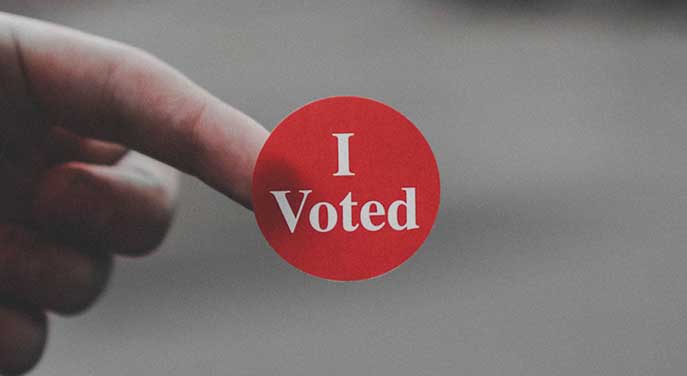 On average, fewer people vote in local elections than in provincial or federal elections. Interestingly, each vote has a greater impact in local elections, especially in smaller communities.
On average, fewer people vote in local elections than in provincial or federal elections. Interestingly, each vote has a greater impact in local elections, especially in smaller communities.
There is more to this phenomenon than numbers and proportions. Local governments not only respond to the input of their constituents on local issues, but school council members, city council members, and mayors also advocate for their communities in negotiations with provincial governments and even with federal agencies.
In many ways, the local election is democracy as it is meant to be. Candidates in small and medium-sized cities do not tend to have corporate sponsorships, nor do they have to conform to the wishes of political parties. They generate their own platforms and advocate for what they believe in. Almost always, they put their names forward as candidates because they love their communities and want to make them better.
 |
| Related Stories |
| The best kind of social medicine in Medicine Hat
|
| Why Mark Sutcliffe is the best choice to become the next Mayor of Ottawa
|
| Housing affordability lies at the very heart of inequality |
Candidates and elected officials are also part of our daily lives. They go to the same grocery stores and restaurants as their constituents, and they are on a first-name basis with many members of their communities. In addition, it is rare that any elected official other than the mayor is a full-time employee of the city, so most elected officials also work among us.
The issues dealt with by local governments directly impact our day-to-day lives. Most Canadian cities have a homeless population, and it is primarily up to local officials to find solutions. Some, like Medicine Hat in Alberta, have found effective ways to serve their at-risk citizens, but most cities have not.
One can tell a great deal about mayoral and city council candidates by the way they respond to questions about social issues in public forums. They may display an attitude that says, “Everyone else is doing this wrong. Only I have the solution.” They may call for more people to be incarcerated, a theory debunked nearly infinite times. Or they may express a need to adapt programs that have been successful elsewhere to their local context.
Of course, local governments must deal with topics like the environment, recreational services, the arts, infrastructure, and taxes. Are candidates able to realistically balance such issues? Again, this tells voters a great deal about them.
In education, Canadian schools continue to struggle to find solutions for the generations of damage caused by the residential school system and the Indian Act. Indigenous graduation rates will improve when we learn to work effectively and creatively with Indigenous communities and their elders. The improvements made will benefit all students, regardless of their ethnicity. Many previously colonized communities all over the world are making tremendous progress in this regard, but rarely, if ever, through harsh and aggressive means. Voters, therefore, need to choose principled, respectful school board members who are effective collaborators.
It is also important to recognize that when the majority of voters ignore their right and duty to cast a ballot, very bad things can happen. Much of the manipulation of the electoral system in the United States today is the result of small groups of people passing laws to keep their interest group in power. They recognized the prevalence of voter apathy on the local level and called on people of shared interests to get out and vote. They then passed legislation in their own interest and have done much damage to American democracy because non-voters allowed them to.
Our system of democracy in Canada is far from perfect, but it is very good. We can thus approach the polls with a sense of gratitude. Local elections may not seem significant, but nothing could be further from the truth. The choices we make, including the decision not to participate, will impact every aspect of our lives.
Troy Media columnist Gerry Chidiac specializes in languages, genocide studies and works with at-risk students. He is the recipient of an award from the Vancouver Holocaust Education Centre for excellence in teaching about the Holocaust.
For interview requests, click here.
The opinions expressed by our columnists and contributors are theirs alone and do not inherently or expressly reflect the views of our publication.
© Troy Media
Troy Media is an editorial content provider to media outlets and its own hosted community news outlets across Canada.

